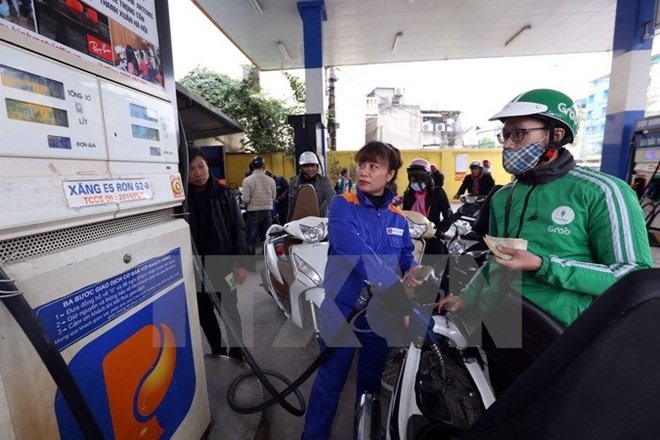 Economy
Economy

Prime Minister Nguyễn Xuân Phúc on Monday promulgated the Decree No 08/2018/NĐ-CP eliminating 675 out of 1,216 business criteria.
 |
| The eliminated criteria in petroleum trading has been of particular interest. — VNA/VNS Photo |
HÀ NỘI — Prime Minister Nguyễn Xuân Phúc on Monday promulgated the Decree No 08/2018/NĐ-CP eliminating 675 out of 1,216 business criteria.
The eliminated criteria accounts for 55 per cent of the total business conditions managed by the Ministry of Industry and Trade (MoIT). The plan to abolish the business criteria under MoIT’s management was approved by minister Trần Tuấn Anh in September last year. This was hailed as a pioneering effort in reforming the business sector. The PM praised MoIT for its effort, saying it demonstrated the ministry’s determination to improve the business climate in the country. He also applauded the ministry for the effective restructuring of its organisational apparatus, particularly the reduction of a number of its divisions.
The eliminated business and investment criteria covers eight sectors - petroleum, tobacco, electricity, franchise, e-commerce, chemicals, industrial explosive material and food trade.
The relaxation of criteria in petroleum trading has been of particular interest.
The decree totally abolished Article 5 stipulating conditions on petroleum production. This means the regulation requiring petrol traders to own or co-own at least four additional retail petrol stations each year after being granted licence stands null and void.
Accordingly, a petrol trader is no longer required to own or co-own (with a capital contribution of at least 51 per cent of the depot system), and to be capable of meeting at least one-third of the trader’s reserve demand three years after being granted a petrol and oil import or export licence.
A petrol trader is also no longer required to own or co-own (with a capital contribution of at least 51 per cent) the local petrol vehicles that have a minimum combined capacity of 3,000cu.m two years after being granted a petrol and oil import or export license.
Anh said in addition to relaxing 675 business conditions, MoIT decided to remove 420 out of 720 goods codes subject to pre-clearance inspection, making up 58.3 per cent of the total number of tariff codes. He added the industry sector had to its credit some outstanding achievements in 2017, including a record high export revenue of over US$200 billion, a high industrial production index growth of 9.4 per cent and an inflation rate at 3.53 per cent, among others. Under Resolution No 01/NQ-CP in 2018, the Government asked for basic improvement and strong change of indicators of the business climate, as well as a 50 per cent cut in the number of business conditions. The Ministry of Planning and Investment said only five ministries had devised plans for the scheme by the end of 2017. The Ministry of Agriculture and Rural Development proposed to remove 118 out of the 345 business criteria that it looked after; the Ministry of Construction planned to cut 89 and simplify 94 out of the 215 conditions. The Ministry of Information and Communications said it would erase and modify 51 business conditions. — VNS




